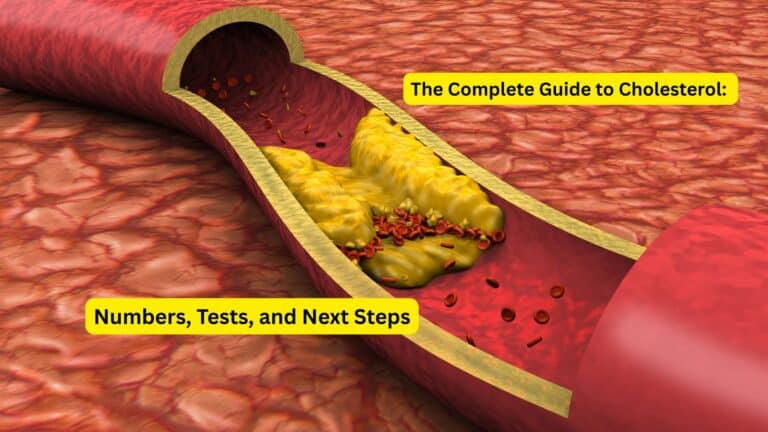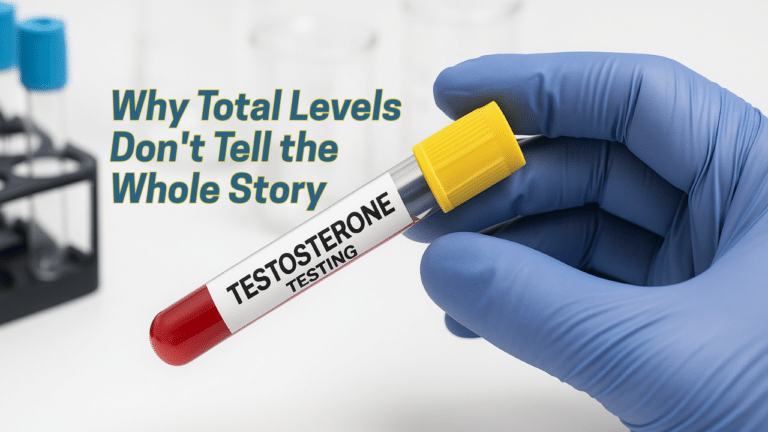The supplement aisle is flooded with products promising to “cleanse,” “detox,” and “restore” your liver—but what does science actually say about these claims? From milk thistle to NAC, turmeric to berberine, liver-supporting supplements have become increasingly popular among health-conscious consumers seeking natural ways to support their liver function. However, separating marketing hype from genuine therapeutic benefits requires a careful examination of the clinical evidence.
This comprehensive review examines the latest research on the most popular liver-supporting supplements, exploring what works, what doesn’t, and what risks you should know about before adding these products to your wellness routine.
Do Popular Liver Supplements Work?
While many liver supplements show promise in laboratory studies and small clinical trials, the evidence for their real-world effectiveness varies dramatically between different compounds. Understanding which supplements have solid research backing—and which rely more on marketing than science—is crucial for making informed decisions about your liver health. Let’s examine the evidence for each of the most commonly recommended liver-supporting supplements.
Milk Thistle
Milk thistle, containing the active compound silymarin, stands as the most extensively studied herbal supplement for liver health. With 248 studies cited in PubMed databases, this purple flowering plant has been used medicinally for over 2,000 years.
The research shows milk thistle can produce modest improvements in liver enzyme levels (ALT and AST) and certain biochemical markers of liver function. However, meta-analyses reveal mixed results for long-term clinical efficacy, particularly when it comes to improving outcomes in chronic liver diseases like hepatitis or cirrhosis.
Most studies focus on silymarin’s antioxidant and anti-inflammatory properties, which theoretically could protect liver cells from damage. Yet the translation from laboratory benefits to meaningful clinical outcomes remains inconsistent across different patient populations and liver conditions.
N-Acetylcysteine (NAC)
N-acetylcysteine has perhaps the strongest evidence base—but within a very specific context. NAC is proven effective for treating acetaminophen toxicity and acute liver injury, where it serves as a critical antidote in hospital emergency departments.
For chronic liver support or general wellness in healthy adults, however, the evidence becomes much thinner. Some preliminary studies suggest NAC might benefit non-alcoholic fatty liver disease (NAFLD) patients, but these findings require replication in larger, longer-term trials before routine use can be recommended.
The distinction between NAC’s proven acute therapeutic uses versus its unproven chronic supplementation benefits highlights why context matters enormously in evaluating supplement research.
Turmeric/Curcumin
Curcumin, the active compound in turmeric, has generated considerable interest for its potential liver-protective effects. Clinical trials in NAFLD patients show curcumin may improve liver fat content, lower enzyme levels, and reduce inflammatory markers.
The anti-inflammatory and antioxidant properties of curcumin provide a reasonable biological basis for these effects. Several randomized controlled trials have reported positive outcomes in patients with fatty liver disease, including improvements in liver steatosis and metabolic parameters.
However, most studies have been relatively small and short-term. Larger, longer-duration trials are needed to establish whether curcumin’s benefits translate into meaningful clinical outcomes and whether they persist over time.
Berberine
Among liver supplements, berberine may have some of the most robust clinical evidence, particularly for non-alcoholic fatty liver disease. Multiple randomized trials demonstrate that berberine supplementation can significantly reduce liver fat, improve lipid profiles, and lower liver enzyme levels in NAFLD patients.
Berberine appears to work through multiple mechanisms, including improving insulin sensitivity, reducing inflammation, and supporting healthy lipid metabolism—all factors that contribute to liver health. The compound has shown particular promise when used as part of combination therapies alongside lifestyle interventions.
The consistency of positive results across different studies makes berberine one of the more promising supplements for specific liver conditions, though it’s important to note that most research focuses on people with existing liver issues rather than healthy individuals seeking prevention.
Probiotics
The connection between gut health and liver function has opened new avenues for liver support through probiotic supplementation. Growing evidence suggests certain probiotic strains may help reduce liver inflammation and slow the progression of liver fibrosis.
The gut-liver axis represents a complex relationship where gut bacteria and their metabolites directly influence liver health through the portal circulation. Probiotics may work by reducing harmful bacterial overgrowth, decreasing intestinal inflammation, and modulating immune responses that affect the liver.
However, the probiotic field faces significant challenges in standardization—different strains, dosages, and formulations make it difficult to draw broad conclusions about effectiveness. More research is needed to identify which specific probiotic combinations work best for different liver conditions.
Risks & Safety Concerns
Despite their natural origins, liver supplements are not without risks and may actually pose significant dangers when used inappropriately. The rise in supplement-related liver injuries serves as a stark reminder that “natural” doesn’t automatically mean “safe.” Understanding these risks is essential for anyone considering liver supplementation.
Herbal and dietary supplements are now linked to an increasing number of drug-induced liver injury cases in the United States, with supplement-related liver failure cases rising significantly over the past decade. This trend is particularly concerning given that many people assume supplements are inherently safer than pharmaceutical medications.
The lack of FDA regulation for dietary supplements creates additional safety challenges. Unlike prescription medications, supplements don’t undergo rigorous testing for purity, potency, or safety before reaching consumers. This regulatory gap means that most liver supplements on the market vary widely in quality and aren’t backed by consistent clinical evidence.
Particularly problematic are products that make dramatic claims about “liver detoxification” or “liver cleansing”—terms that have no scientific meaning but sound appealing to consumers. These products often contain untested combinations of herbs and compounds that may interact dangerously with medications or cause liver damage themselves.
The irony is stark: supplements intended to support liver health may actually harm the very organ they claim to protect, especially when used without medical supervision or in excessive doses.
What Experts Recommend Instead
Rather than relying primarily on supplements, liver health experts consistently emphasize that the most effective liver support comes from proven lifestyle interventions. These evidence-based approaches offer more reliable benefits than most supplements while carrying virtually no risk of harm.
Dietary modifications represent the cornerstone of liver health, particularly reducing processed foods, limiting added sugars, and maintaining a healthy weight. Regular physical activity supports liver function by improving insulin sensitivity, reducing inflammation, and helping maintain healthy body composition. Limiting alcohol consumption remains one of the most important steps anyone can take to protect their liver.
For individuals considering supplements or managing existing liver conditions, regular monitoring through liver enzyme testing provides valuable insights into liver function over time. Comprehensive metabolic panels can detect early signs of liver stress before symptoms develop, allowing for timely intervention.
The key message from hepatologists and gastroenterologists is clear: supplements should never replace proven medical treatments or lifestyle modifications. When supplements are considered, they work best as part of a comprehensive approach that includes medical supervision, appropriate testing, and evidence-based lifestyle changes.
FAQ Section
Does milk thistle really help liver health?
Milk thistle shows modest benefits for lowering liver enzymes and improving some biochemical markers, but meta-analyses find mixed results for long-term efficacy in chronic liver disease. While it’s generally considered safe, the clinical benefits may be less dramatic than marketing suggests.
Is NAC good for the liver?
NAC is proven highly effective for treating acetaminophen poisoning and acute liver injury in hospital settings. However, its benefits for chronic liver support or general wellness in healthy adults remain unclear and aren’t widely recommended by medical professionals.
Can turmeric reverse fatty liver?
Curcumin supplementation may improve liver fat content and reduce inflammation in NAFLD patients according to several clinical trials. However, “reversing” fatty liver requires comprehensive lifestyle changes, and curcumin alone isn’t sufficient as a standalone treatment.
Are liver supplements dangerous?
Yes, liver supplements can pose risks. Recent data shows that 4.7% of U.S. adults report using potentially hepatotoxic botanicals, and supplement-related liver injuries are increasing. Unsupervised use, excessive dosing, and interactions with medications can cause serious liver damage.
Which supplement has the strongest research backing?
Berberine and milk thistle have the most robust clinical evidence, particularly for NAFLD and specific liver conditions. However, even these supplements work best as part of comprehensive treatment plans rather than standalone therapies, and their benefits are most pronounced in people with existing liver issues.
Conclusion
The research on liver-supporting supplements reveals a complex picture: some compounds show genuine promise for specific conditions, but none represent miracle cures or replacements for proven medical care. Milk thistle, berberine, and curcumin demonstrate the most consistent benefits, particularly for non-alcoholic fatty liver disease, while NAC remains valuable primarily for acute liver injuries.
However, the rising incidence of supplement-related liver injuries underscores the importance of approaching these products with caution and medical supervision. With 4.5 million Americans diagnosed with chronic liver disease or cirrhosis, the stakes are too high for trial-and-error supplementation.
The most responsible approach combines evidence-based lifestyle interventions with appropriate medical monitoring. Regular liver function testing provides objective data about your liver health, allowing you to make informed decisions about supplements and track their effects over time.
Rather than hoping supplements will compensate for poor lifestyle choices, focus first on the fundamentals: maintaining a healthy weight, limiting alcohol, eating a balanced diet, and staying physically active. When supplements are considered, use them as part of a comprehensive plan developed with healthcare guidance—not as standalone solutions to complex health challenges.
This article is for informational purposes only and does not replace medical advice. Always consult a healthcare professional before starting supplements, especially if you have existing liver conditions or take medications.





